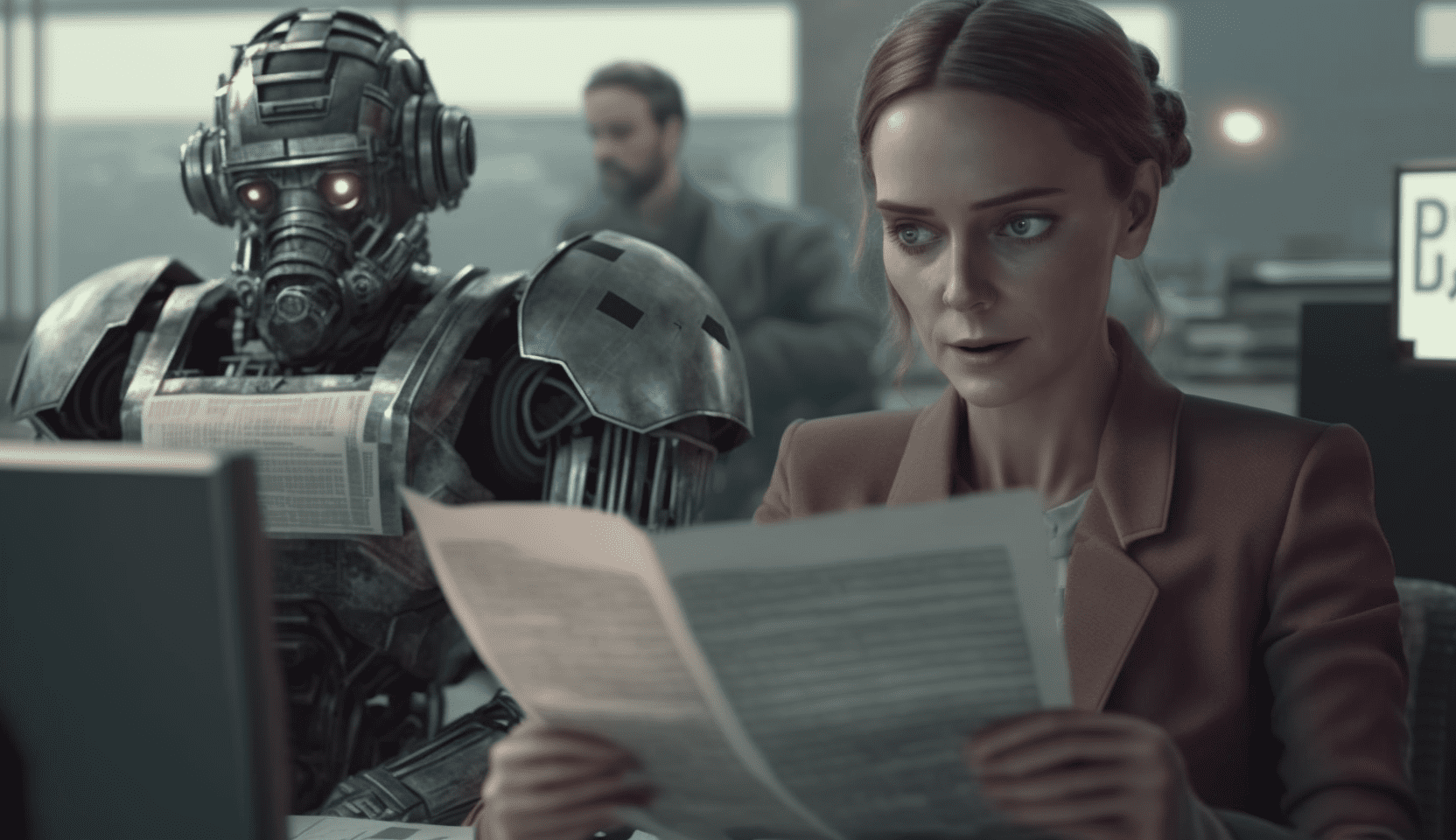
The Netherlands, known for its rich history and innovative spirit, is charting a new course in the realm of artificial intelligence (AI). A recent study by RaboResearch, led by Suzanne Bijkerk and Sjoerd Hardeman, reveals a pragmatic perspective among the Dutch workforce. While they recognize the transformative potential of AI, the majority do not see it as a threat to their employment. Only 6% anticipate significant job disruptions, and 7% foresee changes in their salary structures.
Key Findings:
- The advent of generative AI applications, such as ChatGPT and Dall-E 2, has reignited discussions about the implications of new technologies on employment and income.
- Only a small fraction of workers believe that new technology will have major consequences for their jobs (6%) and salaries (7%).
- Despite this, approximately 38% of tasks in the Netherlands are susceptible to technological advancements due to their routine nature.
- These routine tasks can be categorized into physically routine tasks, which require physical effort (17%), and cognitively routine tasks, which demand mental capabilities (21%).
- AI is likely to replace primarily the cognitively routine tasks, especially those of a repetitive nature.
- Physically routine tasks are predominant among workers in the hospitality, transport, logistics, and industrial sectors, as well as among those with practical education and lower incomes. On the other hand, cognitively routine tasks are more common among workers in business and financial services, government, healthcare, education, and among those with theoretical education and higher incomes.
- Workers anticipate that the impact of new technology will not necessarily result in job or income loss but rather in a shift in job roles that may require new skills and knowledge.
- The expected effects of new technology increase as the tasks of workers become more cognitively routine.

The study utilized a survey of over 10,000 Dutch residents, including 5,446 workers, to map out the tasks performed by these individuals. This helped in analyzing how the Dutch economy might be affected by technological advancements. The research also highlighted which groups of workers are expected to face more significant impacts and which ones less.
The influence of AI on routine tasks
According to the RaboResearch report, routine tasks, both physical and cognitive, are most likely to be influenced by the rise of AI.
- Physically Routine Tasks: These tasks require physical effort and often involve repetitive actions. Examples include operating machinery and overseeing processes. Many of these tasks can be automated with the advent of AI and robotics. In sectors such as hospitality, transport, and logistics, physically routine tasks are prominent. The expectation is that AI-driven robots and systems may take over some of these tasks in the future, leading to a shift like work in these sectors.
- Cognitively Routine Tasks: These tasks call upon cognitive abilities and often contain repetitive actions, such as scheduling meetings or accounting tasks. AI has the potential to particularly influence these tasks. Algorithms can replace the cognitive abilities of workers for tasks with a repetitive nature. Sectors such as business and financial services, government, healthcare, and education have a higher percentage of these cognitively routine tasks. With the integration of AI, workers in these sectors can expect their roles to evolve, where they oversee AI systems more or focus on more complex, non-routine tasks.
The report emphasizes that, although a significant percentage of tasks in the Netherlands are routine in nature, the general expectation among workers is not necessarily that AI will replace their jobs. Instead, they foresee an evolution in their roles and a potential need for new skills and knowledge to collaborate with advanced AI systems.

The findings suggest that while there is potential for certain tasks to be automated, the overall sentiment among Dutch workers remains optimistic. They believe that while their roles might evolve, the essence of their jobs will remain intact, albeit with the need for continuous learning and adaptation.
Healthcare, agriculture, finance, transport
The healthcare sector in the Netherlands is a prime example of this balanced integration. AI-driven diagnostic tools are being employed to enhance patient care, assisting radiologists in detecting anomalies in medical images. Additionally, AI-powered chatbots are becoming a standard tool for patient queries and appointment scheduling, streamlining administrative tasks.
Agriculture, a cornerstone of the Dutch economy, is also benefiting from AI advancements. Farmers are using drones equipped with AI to monitor crop health, predict potential diseases, and optimize irrigation. This approach marries the Netherlands’ longstanding agricultural traditions with modern technology, aiming for increased efficiency and sustainability.
In the financial sector, Dutch banks are harnessing AI for enhanced security. Machine learning algorithms analyze transaction patterns, providing an added layer of protection against fraudulent activities. This ensures the safety of customer transactions and streamlines banking operations.
Transportation is another area where the Netherlands is testing the waters with AI. Efforts are underway to develop AI-driven systems to manage traffic flow and enhance public transportation schedules, to improve commuting experiences for its residents.
Source: RaboResearch, “Werkenden in Nederland verwachten nauwelijks baanverlies door kunstmatige intelligentie”, September 28, 2023.







